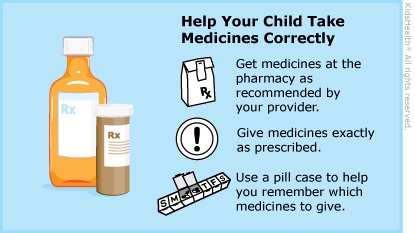Your teen may have been in contact with HIV (human immunodeficiency virus), the virus that causes AIDS. Taking the prescribed medicines can lower their chances of getting infected with HIV. It is very important for them to take all the prescribed medicines exactly as your health care provider recommends. The medicines won't work as well if your teen starts the medicine late, misses a dose, or stops the medicines early.


Help your teen to:

You or your teen:
Your teen:

How do people get HIV? HIV can pass from mother to child during pregnancy, childbirth, or breastfeeding. People also get HIV from being stuck with an infected needle.
In teens, HIV spreads mainly through sex (especially anal and vaginal) and through sharing needles for injecting drugs or tattooing.
How can HIV be prevented? Most HIV is spread through having sex and sharing needles. To prevent the spread of HIV, people should: